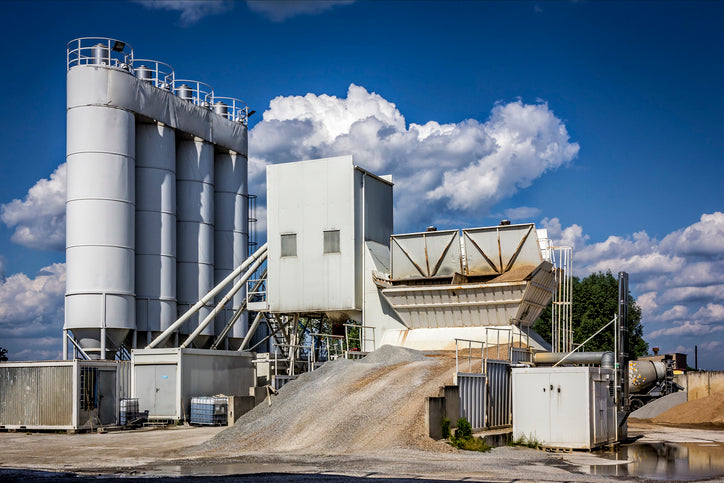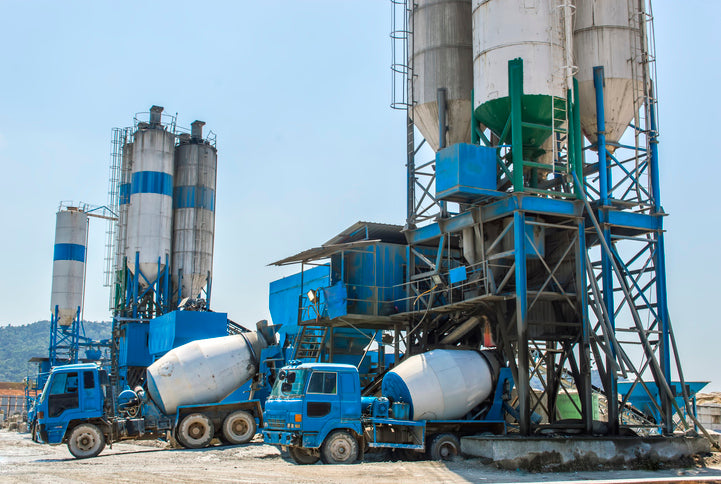Concrete Batching Plant Calibration
-

Quick Turnaround Guaranteed
We understand that time is critical. That’s why we prioritise fast, efficient service without compromising on quality or accuracy. Whether on-site or in-house, our streamlined processes ensure minimal downtime and maximum reliability—every time.
-

On-site Calibration Service
Our expert technicians come to you, providing convenient and efficient calibration at your location. Minimise downtime and maintain compliance with our fully equipped mobile calibration units—delivering accuracy, reliability, and quick turnaround on-site.
-

NATA Accredited
Our calibration services are NATA accredited to ISO/IEC 17025, ensuring the highest standards of accuracy, reliability, and compliance. Trust in certified expertise backed by over 33 years of industry experience.
Since 1992 NATA Accredited (ISO/IEC 17025) – includes compliance with AS 1379.
-

24-Hour Breakdown Service
We offer round-the-clock support to minimise downtime and keep your operations running. Our 24-hour breakdown service ensures fast response and expert assistance whenever you need it most.
Concrete Batching Plant Calibration & Repair Services – AS 1379Compliant
At Independent Scale Services (ISS), we specialise in the calibration and repair of concrete batching plants in accordance with AS 1379 Specification for Supply of Concrete. With decades of industry experience and ISO/IEC 17025 accreditation, we are trusted by major players across Sydneyand surrounding regions.

Why Choose Independent Scale Services?
- Servicing 98% of Concrete Plants across Sydney and surrounding areas
- NATA Accredited (ISO/IEC 17025) since 1992 – includes compliance with AS 1379
- Fleet of dedicated calibration trucks engineered specifically for batching plant calibration
- Experienced Team: 9 qualified technicians supported by leading technology partners
- Proven Track Record: Over 2,830 concrete plant jobs completed in the past 5 years
- Trusted by Leading Clients: Holcim, Hanson (Heidelberg), Boral, Concrite, Metromix, Hymix, Advanced Readymix, Hy-Tec, CPB Contractors, MiniMix and more
- Cloud-Based Calibration Portal: Easy access to calibration certificates and service history anytime
Our Current Clients
-
Calibration Services Offered
We offer both NATA-accredited and non-NATA calibration services. All calibrations are fully compliant with AS 1379 Clause 3.3.2.
We Calibrate:
• Aggregate Hoppers
• Cement Hoppers
• Water Meters
• Water Hoppers
• Slump Stands
• Weighing Scales / Balance Scales -
Concrete Plant Repair Services
ISS provides complete repair solutions for batching plants, including:
• Electrical & Mechanical Fault Diagnosis
• Load Cell Services: Supply, testing, replacement, cabling, and full calibration
• Junction Boxes, Surge Arrestors, Summer Circuits: Supply and installation
• LCI Cards: Supply, testing, and replacement
• Weighing Indicators: Supply, installation, programming, replacement, and calibration
• Flow Meters: Supply, installation, and calibration
• Breakdown or Lightning Strike Response: Full fault diagnosis, repair, and calibration

Complete, End-to-End Service
At ISS, we offer a true one-stop solution:
We can diagnose faults, supply and install replacement parts, and
fully calibrate your system—all with minimal disruption to your
operations.
Spare Parts & Components – In Stock
-
To minimise downtime, we maintain ready stock of leading brands and critical components:
Brands We Support:
PT Global, Rinstrum, Anyload, Kelba, Command Alkon, Manuflo and more -
Commonly Stocked Products:
• Load Cells
• Weighing Indicators
• LCI Cards
• Junction Boxes
• Threaded Rods & Nuts
• Flow Meters
• Moisture Balances
• Weighing Scales
Faq
Importance of Calibration
Calibration is vital to the success of any
concrete batching operation. It ensures that:
- Consistency: Accurate measurements lead to uniform concrete mixes, essential for structural integrity.
- Quality Control: Proper calibration ensures the final product meets specified standards and requirements.
- Cost Efficiency: Avoiding overuse or underuse of materials minimizes waste and optimizes costs.
- Compliance: Calibration helps meet the regulations and standards set by industry and governmental bodies.
Steps in Calibration
The calibration of a concrete batching plant involves several systematic steps:
Step 1: Preparation
Preparation involves ensuring all equipment and tools are clean, functioning well, and ready for use. Calibration should be conducted in a controlled environment to avoid external influences such as vibration or wind. The following preparatory steps are crucial:
• Inspect equipment for any physical damage or wear.
• Clean scales, load cells, and sensors thoroughly.
• Verify the calibration schedule based on usage frequency or manufacturer recommendations.
Step 2: Testing Weighing Systems
Weighing systems are central to batching plant operations. Their calibration involves:
• Using certified test weights to check the accuracy of the scales.
• Adjusting the scales to match the test weight readings.
• Verifying repeatability by conducting multiple tests at varying weight levels.
Step 3: Flowmeter Calibration
Flowmeters measure the volume of liquid components like water and admixtures. Calibration involves:
• Passing a known volume of liquid through the flowmeter.
• Comparing the measured volume with actual volume to assess accuracy.
• Adjusting the meter until readings align with expected results.
Step 4: Control System Verification
Modern batching plants use automated
control systems to manage batching processes. Calibration ensures:
• The system accurately reflects inputs and outputs.
• Software programs are updated and free from errors.
• All sensors and communication interfaces are synchronized properly.
Step 5: Trial Batch Testing
Trial batch testing is the final step in
calibration:
• Prepare a small batch of concrete using calibrated systems.
• Test the mix for compliance with specified standards.
• Make necessary adjustments based on test results.
Frequency of Calibration
The frequency of calibration depends on various factors, including:
• Usage: Plants with high production rates require more frequent calibration.
• Regulations: Industry standards may dictate specific calibration intervals.
• Environmental Factors: Plants operating in extreme conditions may need calibration more often.
• Manufacturer Recommendations: Guidelines from equipment manufacturers provide insight into appropriate intervals.
Best Practices
To ensure accurate and efficient calibration, adopt the following best practices:
• Schedule regular calibration based on plant usage.
• Maintain detailed records of calibration tests and adjustments.
• Train staff in proper calibration techniques.
• Use certified calibration weights and instruments.
• Integrate calibration as part of a broader maintenance strategy.
Conclusion
Concrete batching plant calibration is more than just a routine procedure—it is an essential aspect of ensuring the quality, cost-efficiency, and compliance of concrete production. By following systematic steps, addressing challenges, and adhering to best practices, batching plants can achieve peak performance and consistent output. Proper calibration not only supports immediate operational goals but also safeguards the long-term viability of the plant in today’s competitive construction landscape.
Introduction to AS1379 Calibration Service
AS1379 refers to a widely recognized standard in the calibration and certification of various instruments, particularly those utilized in the manufacturing, construction, and engineering industries. Calibration services aligned with AS1379 are integral to maintaining the accuracy, reliability, and compliance of equipment used in critical applications. By adhering to this standard, organizations can ensure the quality and safety of their processes while meeting regulatory requirements.
What is Calibration?
Calibration is the process of comparing a measurement device or instrument to a known standard to identify and correct any discrepancies. This ensures that the device provides accurate readings within specified tolerances. The calibration process is essential for preventing errors, maintaining consistency, and achieving optimal performance in production or testing environments.
Importance of Calibration Standards
Standards like AS1379 provide a framework for calibration procedures, ensuring uniformity and reliability across industries. These standards define acceptable accuracy levels, methodologies, and documentation requirements. By following such standards, companies can reduce risks, improve efficiency, and build trust with their clients and stakeholders.
Overview of AS1379
AS1379 is a specific calibration standard that applies to the certification of instruments used in concrete testing and construction. It ensures that equipment such as compression testing machines, concrete mixers, and other measurement tools function within acceptable limits. AS1379 establishes guidelines for periodic calibration and verification to prevent measurement drift and inaccuracies that could compromise structural integrity or product quality.
Key Features of AS1379 Calibration Service
• Traceability: Calibration results are traceable to national or international standards, ensuring global recognition and reliability.
• Documentation: Comprehensive reports detailing calibration procedures, results, and adjustments are provided for compliance and auditing purposes.
• Periodic Calibration: Instruments are calibrated at regular intervals to maintain accuracy and prevent potential deviations.
• Environmental Factors: Calibration accounts for environmental conditions such as temperature and humidity that may affect instrument performance.
Benefits of AS1379 Calibration Service
Improved Accuracy and Reliability
By adhering to AS1379 standards, companies enhance the precision of their instruments. Accurate measurements are vital in industries like construction, where errors can lead to serious safety risks or costly delays.
Compliance with Regulations
AS1379 helps organizations meet legal and regulatory requirements, reducing the potential for fines or penalties. Compliance also demonstrates a commitment to quality and professionalism.
Extended Equipment Lifespan
Regular calibration prevents wear and tear on instruments caused by incorrect operation or inaccuracies, thus extending their usable life.
Cost Savings
Accurate equipment reduces waste, minimizes errors, and optimizes resource utilization, leading to significant cost savings over time.
AS1379 Calibration Process
Step 1: Initial Assessment
The process begins with an evaluation of the instrument’s condition and performance to determine its calibration needs.Step
2: Calibration Procedure
Technicians use highly precise instruments and standards to calibrate the device, making adjustments as necessary to meet AS1379 guidelines.
Step 3: Verification
Post-calibration, the instrument is tested to verify that it meets accuracy requirements and performs consistently.
Step 4: Documentation
A detailed calibration report is generated, including results, adjustments, and traceability to recognized standards.
Industries Utilizing AS1379 Calibration
AS1379 calibration is essential in several industries, including:
• Construction: Ensures the accuracy of tools used in concrete testing and structural analysis.
• Engineering: Facilitates precision in measurements for design and prototyping.
• Manufacturing: Guarantees quality control and consistency in production lines.
• Automotive: Enhances reliability in vehicle component testing and assembly.
Choosing a Calibration Provider
Independent Sale Service is the only AS 1379 clause 3.3.2 Certified service provide in Australia accredited by NATA ( ISO/IEC 17025 )
Independent Scale Service is Accredited by NATA (ISO/IEC 17025 ) since 26th August 1992.
Accreditation No. 3720
Please visit NATA’s website for more information.https://nata.com.au/accredited-organisation/zenith-sales-and-calibrations-pty-ltd-t-as-independent-scale-service-3720-3713/?highlight=AS%201379
Conclusion
AS1379 calibration service plays a pivotal role in maintaining the integrity and reliability of equipment used across various industries. By adhering to this standard, companies can ensure precision, enhance safety, and achieve compliance with stringent regulations. Investing in regular calibration not only optimizes performance but also underscores a commitment to quality and excellence in operations.

Get in touch now
Connect With Us
Stay connected with us for the latest updates, expert support, and tailored solutions to meet your needs.
























